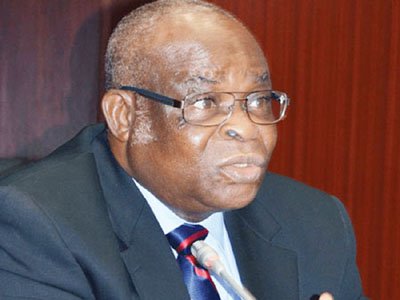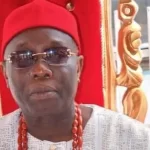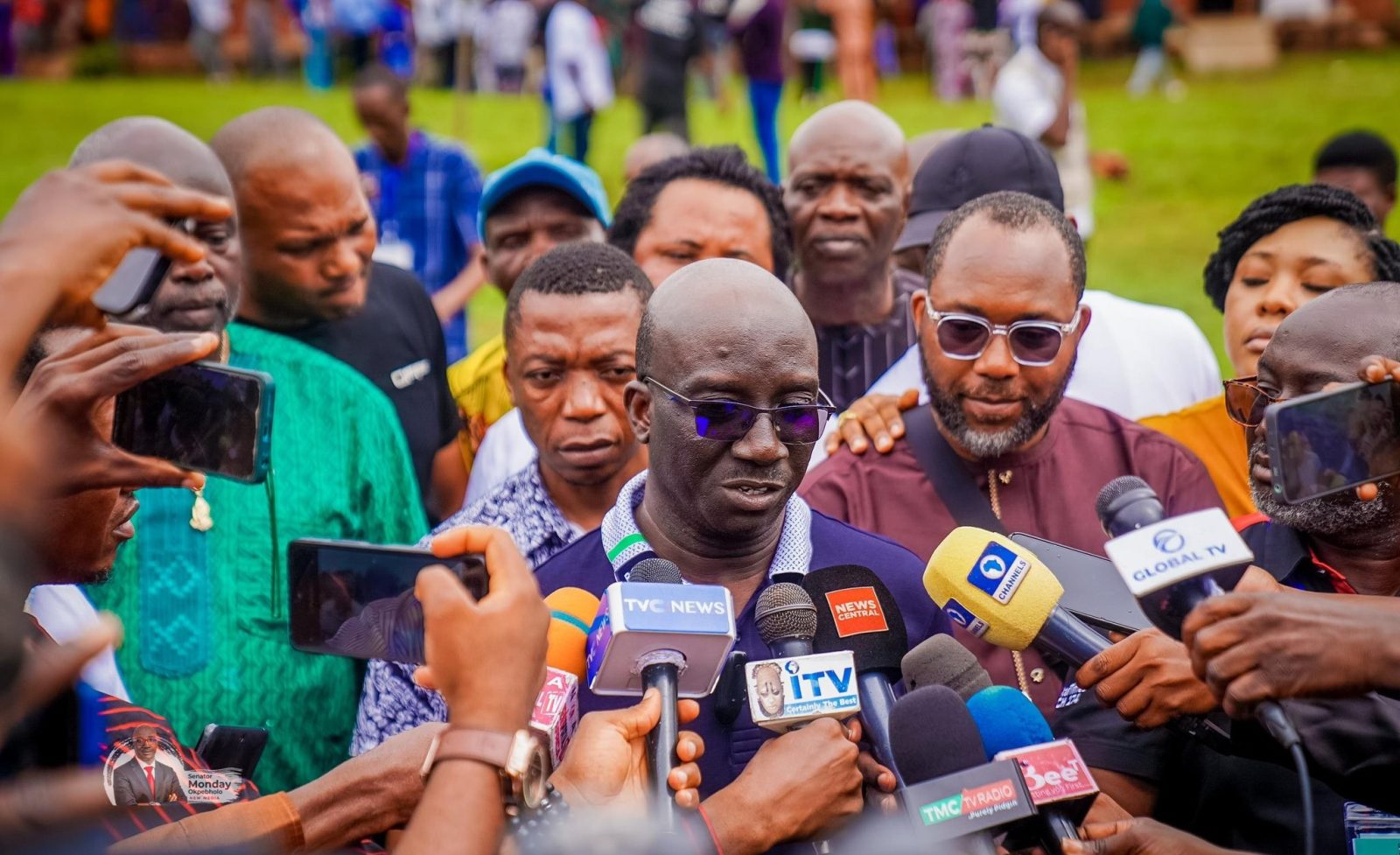A former Chief Justice of Nigeria (CJN), Justice Walter Onnoghen, has appealed the judgment of the Code of Conduct Tribunal (CCT), which ordered his removal from office in 2019.
The legal battle, set to begin on Tuesday, August 20, 2024, in Abuja, was initiated in April 2019 with the filing of the suit at the Court of Appeal.
Onnoghen is seeking to overturn the CCT judgment delivered against him on April 18, 2019, on multiple grounds, asking the Court of Appeal to nullify and set aside the ruling.
In his appeal marked CA/ABJ/375 & 376 & 377/2019, Justice Onnoghen, through his lead counsel, Mr. Adegboyega Awomolo (SAN), is asking the appellate court to quash his conviction primarily on grounds of lack of jurisdiction, bias, and absence of a fair hearing.
With Onnoghen as the appellant, the Federal Republic of Nigeria is the sole respondent.
A notice for hearing of the appeal just sighted by our correspondent is entitled, “CA/ABJ/375 & 376 & 377/2019 BTW: Justice Onnoghen and FRN”.
It read: “Please take notice that the above matter is listed for hearing on Tuesday the 20th day of August, 2024 at 9 o’clock in Court Appeal, Abuja Division.
“Please take note that this serves as a hearing notice.”
Persecondnews recalls that the Code of Conduct Tribunal had in 2019 convicted Onnoghen of all six-count charges of breach of the Code of Conduct for Public Officers brought against him by the Federal Government while in office as head of the country’s judiciary.
The CCT, led by Chairman Danladi Yakubu Umar, delivered a judgment that compelled Onnoghen’s instant removal from the office of CJN.
Furthermore, the Tribunal relieved him of his duties in various esteemed positions, notably the chairmanships of the NJC and the Federal Judicial Service Commission.
Additionally, the tribunal ordered the forfeiture of Onnoghen’s five bank accounts and the money in those accounts that he failed to declare on his asset declaration form to the Code of Conduct Bureau (CCB), an agency of the Federal Government.
The tribunal ordered Onnoghen’s formal removal from his positions as Chief Justice of Nigeria, Chairman of the National Judicial Council, and Chairman of the Federal Judicial Service Commission, despite his suspension since January 25, 2019, and his subsequent resignation on April 4.
Seeking to overturn his conviction, Onnoghen filed an appeal with the Court of Appeal in Abuja in 2019, listing 16 grounds for nullifying the CCT’s decision.
He contended that the Danladi Umar-led panel erred by not dismissing the six-count charge against him, thereby perpetuating a miscarriage of justice.
He contended that the CCT Chairman ought to have recused himself from presiding over his trial.
In his seven-point reliefs, Onnoghen applied for an order setting aside his conviction as well as quashing the order for forfeiture of his assets and to discharge and acquit him of all the charges leveled against him.
Listing some of the particulars of error in the CCT’s verdict, Onnoghen argued that he was a judicial officer at the time the charges were filed against him on January 11, 2019 and, as such, cannot be subjected to the jurisdiction of the lower tribunal.
He argued: “0n the authority of Nganiiwa v. FRN (2018) 4 NWLR (Pt. 1609) 30: at 340. 341 only the National Judicial Council (NJC) has the power to discipline the appellant for misconduct and not the lower tribunal.
“The lower tribunal had in the case of FRN V. Sylvester Nwali Nguta in charge No: CCT/ABJ/01/2017 delivered on 9th January, 2018, affirmed the position of the Court in FRN Nganjiwa v. FRN and dismissed the charges, and acquitted and discharged Justice Ngwuta, being a judicial officer subject only to the discipline of the National Judicial Council.
“The lower tribunal has no jurisdiction over serving judicial officers such as the appellant, save the National Judicial Council.
“The Motion on Notice dated 14th January, 2019, challenging jurisdiction ought to be granted in all material particular as it purports to save the lower tribunal of needless futile exercise.
“The lower tribunal erred in law when it dismissed the appellant’s application seeking the chairman to recuse himself from further proceedings on the ground of a real likelihood of bias and thus occasioned a miscarriage of justice.
“The appellant has alleged that the chairman of the lower tribunal is biased towards him as a result of open remarks in the tribunal as well as the manner in which the proceedings were being conducted.”
Onnoghen disputed the CCT’s finding, clarifying that he never admitted to failing to declare his assets in 2005 as a Supreme Court Justice but rather acknowledged forgetting to declare them in 2009.
He contested the order to confiscate his assets, arguing that they were lawfully acquired, contrary to the CCT’s claim.
Onnoghen pointed out that the CCB Act (Section 23, paragraph 3) only allows for the seizure of assets if they were obtained through fraudulent means, which was not the case.
He faulted the prosecution’s failure to present the petitioner, Denis Aghanya, before the tribunal, whose petition led to the charges against him.
Onnoghen maintained that all the allegations brought against him “constitute no offence and should therefore not have formed the basis for his conviction.”
The former CJN requested the Court of Appeal to issue orders setting aside the CCT judgment on grounds that the tribunal was without jurisdiction to try the case and that the CCT.
Consequently, Onnoghen is seeking two key orders from the Court of Appeal: one to overturn his conviction and another to nullify the order requiring him to forfeit his assets, as imposed by the Tribunal.
Additionally, he requests that the appellate court fully discharge and acquit him of all charges brought against him.





















Leave a comment